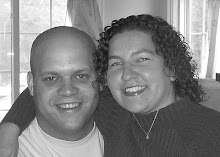How did I like it? I thought it was a cool idea. It was nice to not have my pump around my waist or deal with tubing (while changing, going to the bathroom, showering, etc.) On the flip side the Pod could be a challenge to hide under some clothing, & should an individual need more than 200 units in 3 days, it could get expensive. The OmniPod is about $1,000 up front with the sensors costing about $340 a month... compared to a traditional pump being over $6,000 with monthly supplies in $100's. Over a period of four years (which the warranty for all pumps) the expensive is suppose to even out... with the costs being more spread out throughout the life of the pump instead of all up front. The Pod is water proof, but the handheld device is not. My Deltec insulin pump right now is waterproof (www.cozmore.com) ... but none of the others on the market are. OmniPod is hoping in the future to have the cannula on one end dispensing insulin and a sensor on the other monitoring interstitial fluid for a continuous blood sugar feedback. Both would be controlled with the cordless monitor. Sounds kind of cool to me. However, in diabetes language it could be right around the corner... or forever away. As Dr. Mike would say "five years" means they don't have a clue and it could be many years! With so many companies competing to come out on top and have the next best thing... the technology used to treat diabetes is exploding (which is great for us with diabetes!)
Friday, August 24, 2007
OmniPod
One of the things I love about Camp is the chance to hang out with Endocrinologists, Fellows, Residents, Med Students, Diabetes Educators and Reps from different Pump Companies. It gives me a chance to get the inside scoop on what is going on in the world of diabetes (as well as their opinions... all of which are different!) This week I got to try out an OmniPod (www.omnipod.com) for a few days. It is a "cordless" insulin pump. There are some really cool things about it (like not being attached to a device, & always being connected.) Some downs sides is that it is easy to forget the programming part of the pump & the pod is larger than than the insertion site of a regular pump. The OmniPod also holds only 200 units of insulin when a few other pumps hold over 300. The insertion part was really nice (it didn't hurt at all!) The pod is programmed to give a set amount of insulin all the time (even without the handheld device in range... & then when you want to change that program or take more insulin one just needs to have the device within a foot of the Pod.) The Pod deactivates after 72 hours (with an extra 8 hour window) for safety... so people can't wear their sites longer than recommended. The large size of the adhesive is suppose to keep it from coming off... however I had to remove mine after two days because the adhesive pulled off enough that the tubing kinked. I could probably fix that problem with placing a tegaderm under the site for more stability (that is what I did with my first pump.) The OmniPod has been out for two years on the East Coast & is just now spreading across the US, they are still a small companies (& most employees have diabetes). Comparred to MiniMed which is huge & has the largest market share of pump wearers.
The other cool thing around camp is the sensor that goes with the MiniMed pump. A few of the docs are wearing it... some who love it, & some who have tried it & think it will take more time to get perfected. Almost all of the pump companies are working on having sensors to go with their pumps (some are in FDA approval & some have not gotten that far yet.) In a few years I am sure that the selection of products will be much more sophisticated than now. The other issue is that most insurance companies are not willing to pay for the sensors at this time (those that are paying... their customers are wearing the sensors, and really liking them.) The two companies that have sensors are MiniMed (www.minimed.com) and DexCom (www.dexcom.com) . Two nights ago it was kind of funny as Molly's sensor kept going off (she was low), but know one really knew who's pump or sensor it was (since a few of us were trying out different pumps that we were used to, & Molly just got her sensor!) By the time my warrenty runs out on this pump (a year from October) there should be a much better selection. I would think that a few more companies will be on board with the sensors and the ones that are out will be more perfected.
Dr. Mike has been a Peds Endocrinologist at the IDC for years (I think this might be his 30th year at camp), as he is getting closer to retirement it is very interesting to get his perspective on things. He made the comment that the more we find out about Chronic Illnesses (like Diabetes) the more we realize just how complex they are. That perhaps our idea of two types of diabetes will very soon be replaced with the concept that each individual has a much different disease (we can no longer do one regimen fits all...) This is already happening at the forefront of diabetes. Unfortunately we still have many doctors who are living in the dark ages...



